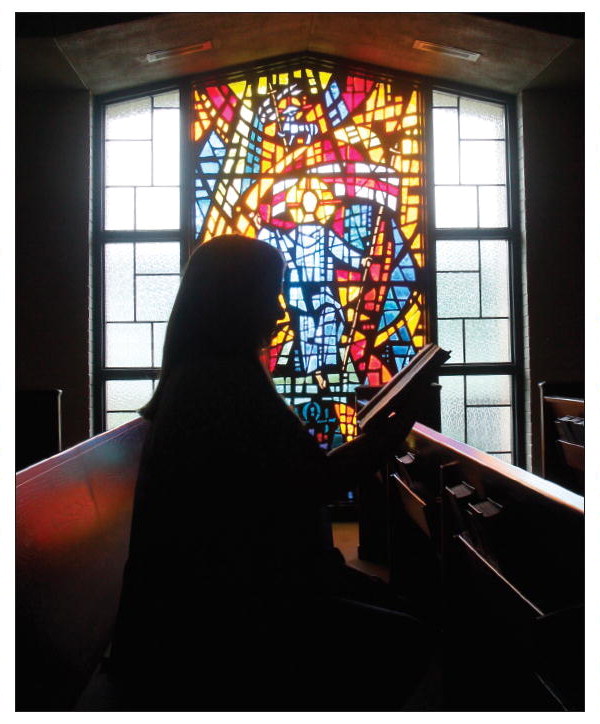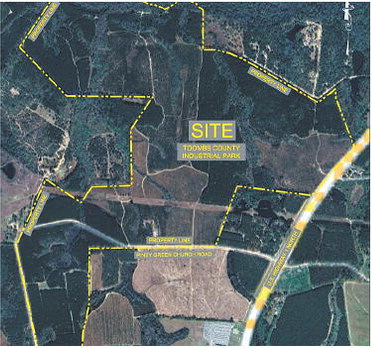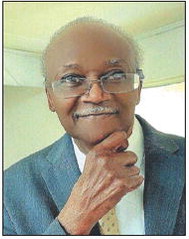The Methodist Divide


The United Methodist Church (UMC) is currently not very united, as affiliated churches consider whether or not to disaffiliate from the historic organization. On Saturday, August 20, the South Georgia Annual Conference of the United Methodist Church met and officially approved the disaffiliation of 62 churches, including 8 area churches in Toombs, Montgomery and Wheeler counties. In all, there were 19 churches in the South Georgia District to which area churches belong, that left the organization.
At issue was a disagreement between individual churches and the UMC on the matter of homosexuality and a few other doctrines that differ from those of the original denomination. This exodus follows the departure of 70 churches from the North Georgia United Methodist Church Conference over the same issues. The disagreement stems from the United Method- ist Church’s decision to stray away from some of the teachings of Traditional Christianity and move closer toward Progressive Christianity. The changes between the two types of Christianity include: Traditional Christianity believes that the Bible is the Authoritative and Trustworthy Word of God. Progressive Christianity often views the Bible as a record of thoughts and ideas about God and Human nature from the perspective of an ancient people. Traditional Christianity believes in the Virgin Birth. Progressive Christianity does not believe Jesus was born of a virgin. Traditional Christianity believes in the Deity of Christ. Progressive Christianity believes Jesus was a good man, a prophet, and a teacher, but not a diety. Traditional Christianity believes that Jesus is continued from page
the only hope for salvation. Progressive Christianity believes Jesus is among many ways to God.
Traditional Christianity believes in atonement through the sacrificial death of Jesus. Progressive Christianity believes Jesus’ death is not an atonement for sins because this atonement points to an abusive, violent God.
Traditional Christianity believes in the bodily resurrection of Jesus. Progressive Christianity believes Jesus was not bodily raised from the dead, and that the disciples and other witnesses had some sort of spiritual experience in which they sensed the presence of Jesus, which became known as the Resurrection.
Traditional Christianity believes marriage is between a man and a woman. Progressive Christianity believes any two people who love each other may marry, regardless of gender.
Of these new Progressive Christianity values, only the belief regarding marriage warranted leaders of the United Methodist Church to allow affiliated churches to be able to disaffiliate from the organization. This rare occurrence is a decision that churches must make through a formal vote by members then submit to their district conferences for approval.
Upon approval, these churches must then pay pensions, unpaid apportionments from the past year and upcoming year, and clergy’s compensation and benefits through the date which disaffiliation becomes effective to complete the process. This process must be completed by December 31, 2024.
Departed Churches
A total of 19 of the churches approved to disaffiliate from the United Methodist Church came from the local Northeastern District of the South Georgia United Methodist Church Conference, which covers Emanuel, Montgomery, Burke, Tattnall, Bulloch, Screven, Johnson, Toombs, Wheeler, and Evans Counties.
Among these 19 separating churches were 8 local churches: Alston UMC, Charlotte UMC, and Uvalda UMC from Montgomery County; Grace! UMC, Smyrna UMC, and Vidalia First UMC from Toombs County; Shiloh UMC and Springhill UMC from Wheeler County. “It’s not an issue of homosexuality. The homosexuality disagreement is a symptom of the real problem. The real problem is the United Methodist Church has strayed from scripture,” Shiloh UMC and Springhill UMC Pastor Ron Womack commented. “This separation has been 30 years in the making. We have finally come to the point where we need to separate to hold on to John Wesley’s teachings and the Bible.”
Womack says that both of his churches have very positive attitudes about disaffiliating from the UMC. “It’s a new day and we are going to continue to move forward, and we are happy with that,” he added.
Womack’s wife, Shareon, serves as a minister to a United Methodist Church in Montgomery County, and also spoke on her church’s decision to disaffiliate. “The United Methodist Church has basically left us when it comes to our fundamental beliefs, and they have strayed from what was originally established as our foundation,” she remarked. “Thankfully, we have leadership in South Georgia that understands that and is gracious enough to allow the churches to remove themselves and be able to come away and either become independent or identify with another denomination. We are able to now come together with those with like beliefs.” She said her church members feel a sense of peace and comfort that they are no longer identified with an organization that does not coincide with their beliefs. “That’s really where our heart truly lies — is in those Methodist doctrines that we have held true to since the inception of these churches, some of which go back to the 1800s,” she noted. Vidalia First United Methodist Church Senior Pastor Jim Smith and church staff unanimously supported disaffiliation from the United Methodist Church, and their congregation agreed, as the vote was approved with almost no disagreement. The decision to disaffiliate costs the Vidalia church an estimated total of $245,000, which has been collected through fundraising within the church. The church has already voted on a new name, Vidalia Cornerstone Church, to which it will transition once all aspects of the disaffiliation process are completed.
Smith shared his thoughts on the decision. “While this was not an easy decision, it will allow the Vidalia First family to move past the denominational struggle and focus our attention on helping people move closer to Christ, without the distractions that have plagued the UMC the last several years,” he stated. “We will continue to reach out with Christ’s love to the ends of the earth through the witness of the Wesleyan/ Methodist theology, which has so wonderfully been used by the Lord around the world.”
Stephen B. Grantham, District Superintendent for the Northeast District of the South Georgia Conference of the UMC, said, “While our desire is for all churches to remain United Methodist, we want each church body to go where God is calling them to be.
“We are grateful for their many years of ministry with us and pray God’s blessings on them. As a district superintendent, I am excited about what our churches in the South Georgia Conference of The United Methodist Church are doing and will do in our communities in the name of Christ. Our mission remains: to make disciples of Jesus Christ for the transformation of the world. Our local churches are doing this each and every day, and for that I am grateful.”
Other churches around the state are expected to continue to vote on disaffiliation throughout the remainder of allotted decision time, as the Methodist Divide continues to impact churches throughout the nation.






